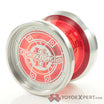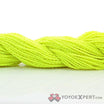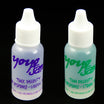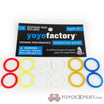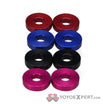Here’s what Claude(my favorite AI) has to say on the matter:
"The practice of falsely claiming an item is “the last one” when it isn’t is a form of deceptive advertising. This type of false scarcity marketing is generally considered misleading and unethical.
In the United States, this practice would likely violate Section 5 of the Federal Trade Commission Act, which prohibits “unfair or deceptive acts or practices in or affecting commerce.” Similar laws exist in many other countries. The FTC has taken action against companies for creating artificial scarcity and making false claims about limited availability.
A legitimate “limited edition” product should genuinely be produced in restricted quantities. If a business advertises something as “the last one” when they actually have more in stock, they are making a false statement intended to pressure consumers into making quick purchasing decisions.
Legal consequences could include:
- FTC enforcement actions
- State-level consumer protection penalties
- Civil lawsuits from misled customers
- Required corrective advertising
- Monetary fines
For a more precise understanding of how these laws apply in your location, you may want to consult with a local consumer protection attorney or your regional consumer protection agency."
